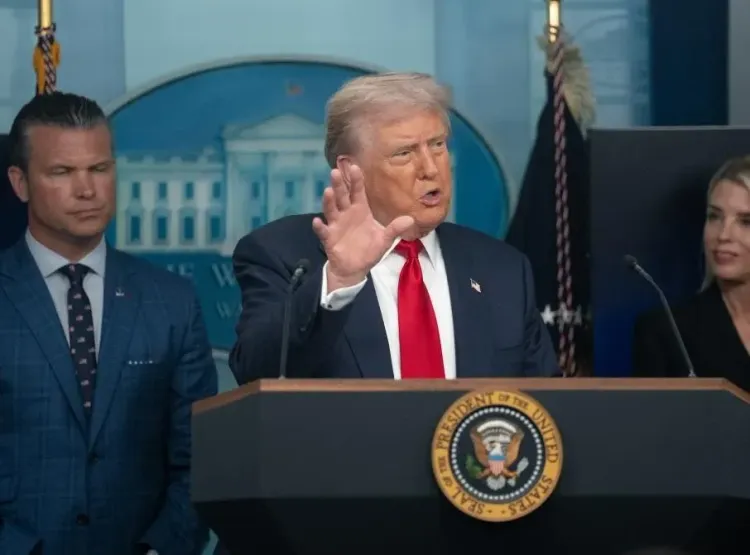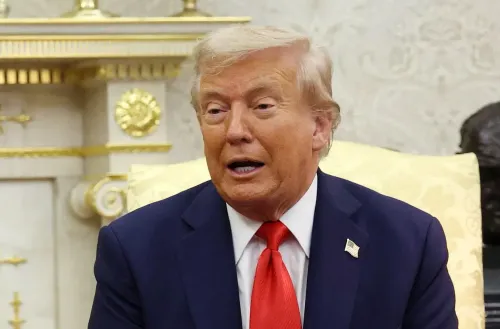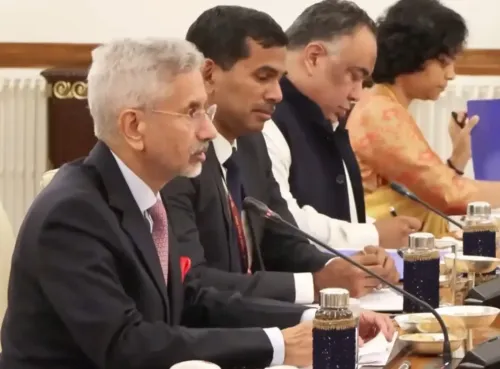Did Trump’s Tariffs Really Generate ‘Trillions of Dollars’ After Court Ruling?

Synopsis
Key Takeaways
- Trump claims tariffs generated trillions for the US economy.
- The US Court of Appeals ruled he overstepped his authority.
- Congress holds exclusive power to impose tariffs.
- Trump plans to appeal the ruling to the US Supreme Court.
- Some tariffs, like those on steel and aluminum, remain intact.
Washington, Sep 1 (NationPress) US President Donald Trump asserted that his tariffs generated “trillions of dollars” for the US economy, following a federal appeals court decision that stated he exceeded his presidential authority by implementing these tariffs without congressional approval.
Trump defended his trade policy on Truth Social, stating,
“Prices are WAY DOWN in the USA, with virtually no inflation. Aside from the absurd, corrupt politician-sanctioned ‘Windmills,’ which are detrimental to every State and Country using them, energy prices are decreasing significantly. Gasoline is at historic lows. All this is occurring despite exceptional tariffs, which are bringing in trillions of dollars from countries that have exploited us for decades, making America STRONG and RESPECTED again!!!”
Trump’s comments follow a major legal setback for his administration’s trade initiatives.
On Friday, the US Court of Appeals ruled that Trump had overstepped his authority by unilaterally imposing what are termed “reciprocal tariffs” during his presidency.
The court clarified that the authority to impose tariffs lies “exclusively” with Congress as part of its constitutional powers regarding taxation and trade.
The court specifically scrutinized Trump’s reliance on the 1977 International Emergency Economic Powers Act (IEEPA), noting that while it grants the President certain emergency powers, it does not empower him to impose tariffs or taxes.
However, the ruling will not take immediate effect and has been stayed until October 14 to provide the administration time to appeal.
In response to the ruling, Trump indicated he would escalate the matter to the US Supreme Court, arguing that the decision undermines the presidential powers essential for safeguarding national economic interests.
Importantly, tariffs on steel and aluminum, enacted under a different legal statute, will continue to remain in effect.









